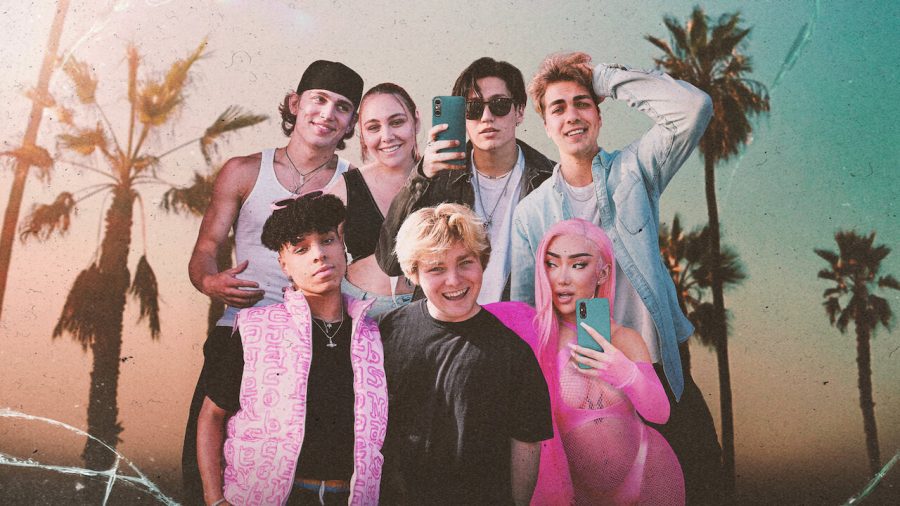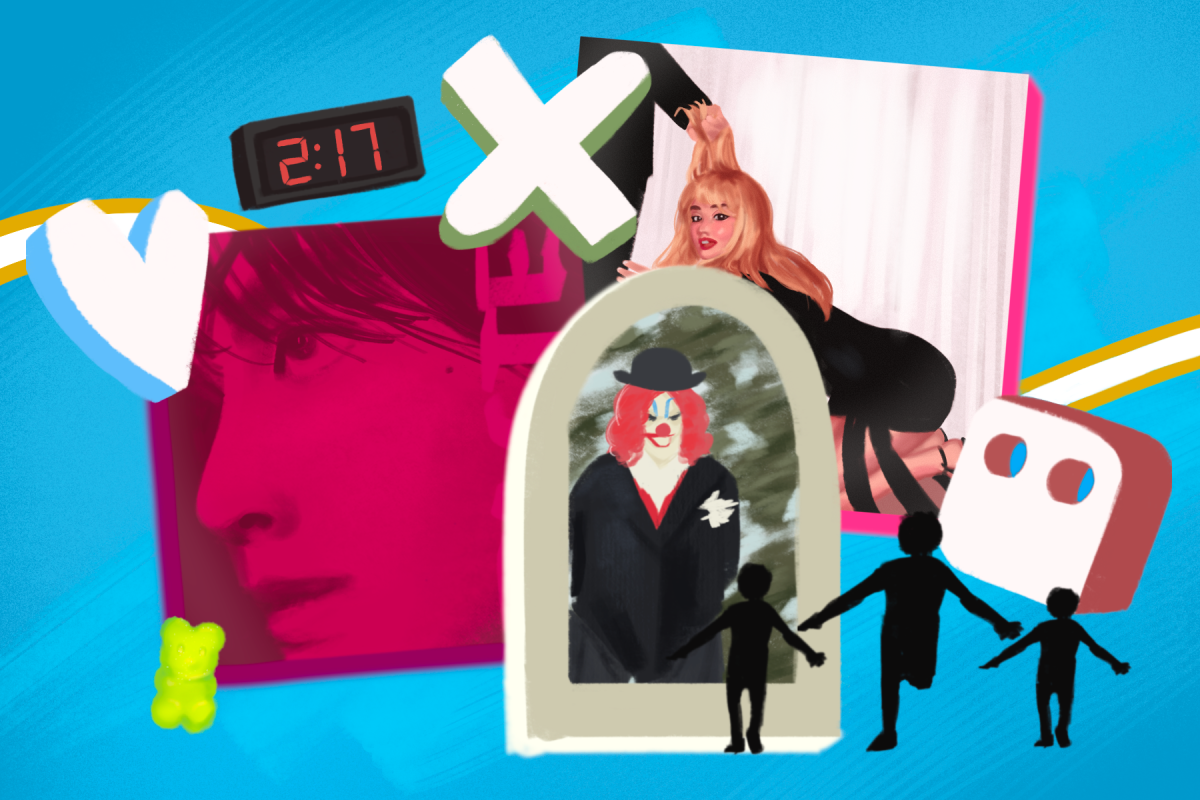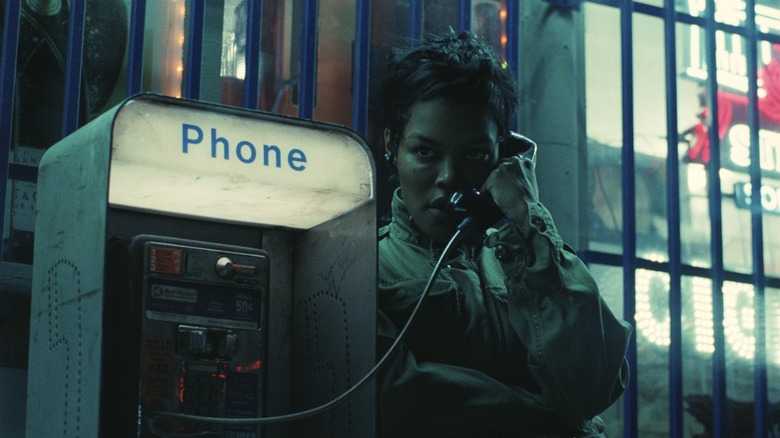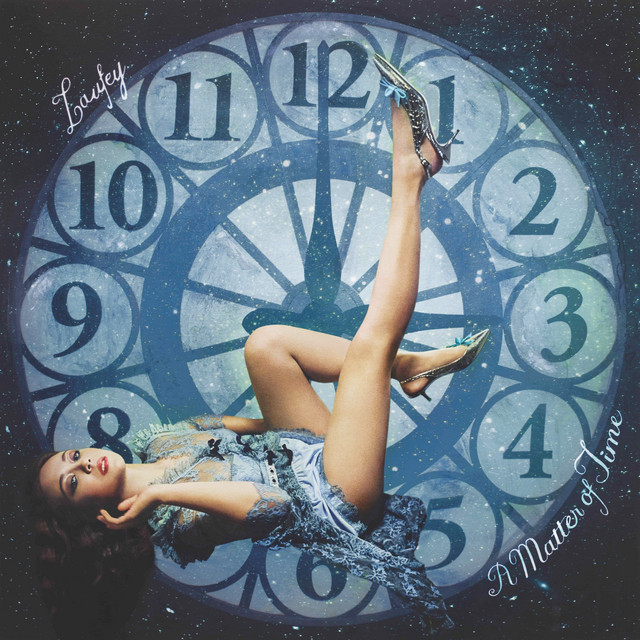What looked like a funny-in-a-bad-way, watered-down version of “Keeping Up with the Kardashians” turned out to be a sad-in-an-awfully-depressing-way show about the culture and industries that have been built by the Internet.
Influencers are a sort of morbid fascination for me, particularly the way in which they revel in almost-celebrity lifestyles without quite ever reaching the pantheon of A-Listers. They dance, they sing, they act, and they’re almost always incredibly mediocre at it. So, when I saw that Netflix’s show “Hype House” — a show about, well, Hype House — came out, I was curious; what is it about these people that enamors hordes of teenagers to watch every ten-second video that they produce? What started out as a guilty indulgence very quickly became a bleak insight into the influencer industry, and the pitfalls of modern self-commodification.
In a piece for The Atlantic, writer Rachel Monroe writes that Charli D’Amelio’s success is in large part due to her relatability and attainability, managing “to telegraph an ordinary kind of specialness,” an attribute which can be applied to D’Amelio’s fellow Hype House members. These people are all conventionally attractive (and for the most part, White), though never overwhelmingly so. They’re not supermodels, they’re the popular kids from high school, which is what these people reminded me of as I watched the show: suburbanites with too much energy who love doing s— to impress their friends and girlfriends. (Coincidentally, Jack Wright, one-half of a TikTok duo made up of him and his twin brother, and a member of the Hype House, began attending the same high school as me during my senior year.)
Take Alex Warren for example, a member of Hype House who got his start on YouTube, making controversially David Dobrik-esque vlogs, but was shot into the spotlight upon joining Hype House on TikTok. His old vlogs, or at least the ones still up on his YouTube page, consist of him and his two buddies Patrick and Calvin making d— jokes and screaming at the camera for four minutes straight. Watching these videos is like being dropped in a middle-of-nowhere suburb; it reminds you of high school, of that one group of boys that were too loud and too annoying, but just charismatic enough to get away with it. They’re relatable, but most importantly, the image they’re selling is attainable. Any teen with an iPhone and an internet connection could be these guys, and that’s probably why they blew up. And so emerges what my girlfriend has dubbed The Plight of the Influencer: what do you do when the most special thing about you — the only reason you’re famous — is that you’re not special?
Well, if you’re Warren, you exploit the dreams and aspirations of your significant other in a futile attempt to combat dwindling viewership. In the show, he makes a point of how his videos have been receiving less and less engagement from audiences, something that worries him quite a lot — especially because he spends up to seven times my yearly rent on his videos in any given month. The formula of his videos hasn’t changed, it’s still just a group of bros being dudes in front of Warren’s camera — except now they live in a big mansion and drive around in G-Wagons. The relatability — and the attainability — of his videos have been lost, most likely a contributing factor to his loss in viewership. This pushes Warren to stage a fake wedding with his girlfriend and fellow Hype House member Kouvr Annon. It’s painful to watch as Kouvr confesses to the camera and to her friends that getting married is something she’s wanted for a while, and something she’s talked to Warren about, only for the latter to turn around and exploit their relationship in the name of content creation. And while Warren is certainly not free of any criticism when it comes to the ethics of this content creation, his ludicrous spending and the extremes to which his job pushes his personal life should be seen as a symptom of the system. YouTube and TikTok pay their creators based on engagement; a sort of sliding scale rather than a fixed regular salary, the nature of which makes it difficult for any of these kids to feel comfortable taking a break, and which often pushes content creators to things like, say, swinging their friends around from an excavator.
In episode six of the show, Thomas Petrou, a founding member of Hype House, pays for a retreat to Joshua Tree which he hopes will jumpstart content creation among the stagnating members of the collective. This is a hot-button topic for Petrou, who throughout the show is asking members of the collective to post more content, only to be ignored. It’s hard not to feel bad for the guy — though not because his teenage employees are being teenagers. It’s mostly because Petrou has convinced himself that he and his gang of industry disruptors have gamed the system, that social media works for them, and that that’s what’s made them so successful. He’s proselytized himself into the cult of The Hustler Mentality™. But as the show continues, it becomes painfully obvious that this is not the case. Petrou’s constant breakdowns and consistent anxieties about losing everything he’s worked for betray the idea that he’s in control. Just as Warren’s exploitation of his relationship is a red flag about the influencer machine, so is Petrou’s inability to step away from work. These kids are not hustling. They’re burnt out and driving themselves into the ground. This isn’t to say that posting a couple of ten-second videos a day is hard work, but rather that the economic model that this form of entertainment operates on is unsustainable. These pseudocelebrities and their careers are not built for longevity; they exist on platforms that encourage users to move on to the next interesting thing as soon as the current trend becomes boring. The influencer industry creates pressures that are detrimental to those who exist in it, and it should concern us that more and more people are aspiring to it.
In his piece for Harper’s Magazine, writer and university professor Barrett Swanson catches TikTok star Baronscho during a refreshing moment of self-awareness: “The scary thing is you never know how long this is going to last, and I think that’s what eats a lot of us at night. It’s like, what’s next? How long can we entertain everyone for? How long before no one cares…?” The quote speaks to the hyper-consumerist nature of the internet, and the ways in which it has exacerbated the pre-existing anxieties and worries surrounding child stars within the traditional entertainment industry. The Hype House is a show about our generation’s child stars, one that set out to give us an inside look into the decadence and possibilities that this new industry brings; instead asserting that this show, and the industry it provides insight into should not exist. It’s a bleak image, one of teenagers and twenty-somethings playing at being celebrities, the ever-tightening grip of the algorithm wrapped around their necks.
Image courtesy of Netflix.
I Wish the Hype House Show Wasn’t Real
Jan 23, 2022
0
More to Discover








